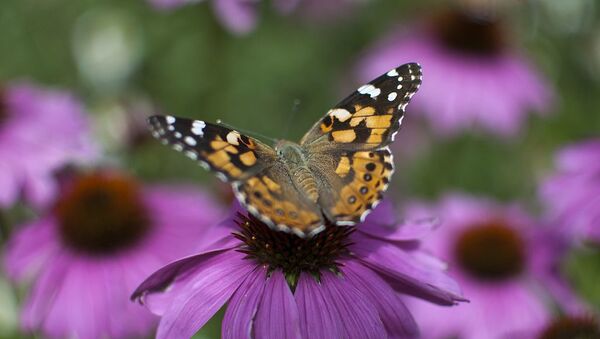Changeable weather in Britain has produced mixed results for migrant and native fauna.
An audit by the National Trust has found that warm spells of weather in the first half of the year attracted migrant species of butterflies, moths and dragonflies to British soil. For instance, the Vanessa cardui, an orange-and-black butterfly, also known as the painted lady, arrived en masse for the first time since 2008.
The Catocala fraxini, a rare moth that went extinct in the UK in the ‘60s, also appeared in southern parts of the country, in the highest numbers for 25 years.
“Sightings of migrant insects and birds are becoming more common,” said Ben McCarthy, the head of nature conservation and restoration ecology at the trust. He attributed those arrivals to the warming climate.
“Although this can seem exciting, the obvious flipside is how these changes will start to affect some of our native species already under pressure from intensive land use, habitat fragmentation and climate change.”
“More mobile species might be able to escape unfavourable conditions, but they’d have to find similar conditions elsewhere. The biggest threat is to less mobile species and those that are specialists.”
Although many resident species did well this year, some have had a tough time due to drought and wildfires.
Fires on Marsden Moor over the Easter destroyed around 700 hectares of habitats, including those of mountain hares and some rare ground-nesting birds.
The drought has also resulted in losses for natterjack toad spawn and tadpoles, while water voles in the Yorkshire Dales and some seabirds on the Farne Islands suffered from heavy rainfall in June.
“This year’s changeable weather is a symptom of the warming climate,” said climate change expert Keith Jones. “The more our temperatures go up – the more erratic our weather will become. This will force changes to the life cycles of many species as food webs are knocked out of sync.”



